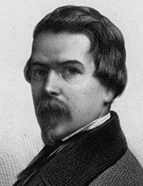

It seems to me that, rather than being a mere figment of the imagination, the traces of Varnhagen's life and his body of work reveal, if not a definitive belief in who he was, what he truly represented, and what he might come to represent, then at least a resolute intention not only to craft a biography but also to safeguard it—a profound desire, ultimately, to care for himself.
The legacy of Varnhagen's work, especially his História geral do Brasil, to Brazilian historical culture and relations with Portuguese historiography produced a lasting impact. Transformed into a history textbook by Joaquim Manoel de Macedo for the students of the Colégio Pedro II [Pedro II College], História geral now has ten editions. To those that were published by the author himself, we should add the third, which began in 1906 with Capistrano de Abreu but was interrupted. Rodolfo Garcia resumed the project and, in 1928, published the third/fourth complete edition in five volumes, incorporating Capistrano de Abreu's work into his own commentaries. The following editions reproduce the latter. The critique reception of Varnhagen's work, notably his História geral, has perhaps been surpassed by the great História geral da civilização brasileira [General History of Brazilian Civilisation] from the early 1960s, by Sérgio Buarque de Holanda. But let us not be mistaken: even if Varnhagen loses his centrality, his work and his História geral remain, if not as the "iron frames" of Brazilian historiography, as Capistrano de Abreu described them, then certainly as a foundational source.
Varnhagen left his wife and two sons, Xavier and Luis (the firstborn died aged just three). Xavier, born in Lima, died in 1894, aged 29. His mother published her memoirs, originally written in French, in 1896. Luis was born in Vienna and adopted his mother's nationality. Like his father, he became a diplomat for the Chilean government. His last role was as Minister Plenipotentiary in Berlin. He died in Rio de Janeiro in 1939. Varnhagen's children left no descendants. Before the middle of the 20th century, the Porto Seguro ceased to exist.
This work is financed by national funds through FCT - Foundation for Science and Technology, I.P, in the scope of the projects UIDB/04311/2020 and UIDP/04311/2020.
